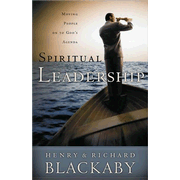Pastors MUST be able to TRUST their leaders. Leaders, in the church, MUST be able to TRUST their pastor. This relationship between the pastor and others in church leadership must grow, and it must remain intact if the ministry is to perpetuate in a Christ-like way!
Without a doubt, being a pastor of any size of congregation is difficult. A man who would take this responsibility on should be commended! With this commendation in mind, it is also universally understood that many of the problems of ministry that lead to catastrophic failure stem from issues in the church leadership team. Though, many of these issues can be examined in later posts, it is the intent of this post to expound on ONE of the root causes of success or of failure in the leadership of a local church.
George MacDonald said, “To be trusted is a greater compliment than to be loved.” Could it be that the Achilles Heel of a pastor’s heart is this very thing? A pastor usually desires to be loved in the same measure, if not more than, in which he loves. After all, he pours his heart out to them in every public speaking engagement! This can be perceived as being a selfish love, but it is true and also reasonable to think in this manner.
The Bible teaches us in numerous places that we should, without reservation, place our trust, confidence, love, etc. in God alone. We cannot stake our existence in the promises of politicians, government entities or any other human being. We can, however, stake our lives upon God and His promises! Consider just a few of the many verses on this subject…
Nobody is disputing the aforementioned verses, but their is a “trust issue” involved in the arena of discipleship, and in stewardship. The famed Apostle Paul understood that he was given the responsibility ministry because he could be trusted. Consider 1 Timothy 1:12. When Jesus gave the Great Commission (Matthew 28:19-10), as we term it, He implied through His command that He was entrusting this “commission” to His disciples. This is seen in the fact that He reminded them of His abiding presence to enable them to perform the command. Think about it! If He did not trust them, then He would not have commanded them nor would He encouraged them by His perpetual watch-care as they performed the task.
Though we cannot stake our existence solely upon the word of man, we must extend a measure of trust to individuals every day. When it comes to working with anybody, you have to trust them. We see this in Law Enforcement, Military, Hospital and churches alike. As a pastor, you have to be one who people can trust and respect, and you have to be able to develop this in people whom you disciple and entrust with leadership responsibility.
Trust is an issue that few really understand. For most of us, we have no problem trusting “Christian” people, whom we do not know, until they compromise our trust. As a pastor, this is amplified many times over. You have to be able to trust people OVER and OVER again… even though you are disappointed many times. This was the issue the Apostle Paul had with John Mark. Paul did not trust him while Barnabas did.
In conclusion, remember:
- You have to TRUST people if you are going to be an effective pastor.
- Yes, you will be disappointed numerous times by the same offenders. (If this bothers you, just reflect upon what God received when He saved you!)
- You have to be someone whom people can TRUST. Do not presume that people do and will keep on trusting you.
- You have to earn this respect not demand it.
- Create an environment for people that you are entrusting responsibility to rise and fall on their own merits. TRUST THEM!
- If your church is to be effective over many generations, then those in leadership must be people the congregation can TRUST and those in leadership must TRUST each other.
- Do nothing that would violate the TRUST of others!
Would you consider purchasing this book?
 |
Spiritual Leadership: Moving People On to God’s Agenda By Henry & Richard Blackaby / B & H Publishing Group Henry and Richard Blackaby are “concerned that many Christian leaders are reading secular books and are applying their teachings uncritically, “so they wrote Spiritual Leadership to help Christian leaders in business, politics and the pastorate develop the qualities of spiritual leadership. Spiritual Leadership will help you understand God’s design for leadership and will enable you to lead God’s people towards the fulfillment of His purposes. Let the Blackaby’s teach you the biblically based principles that will enable you to lead in the 21st century. |










